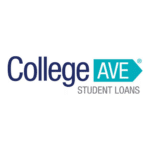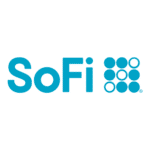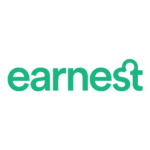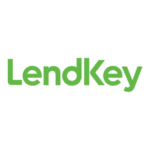Top 7 Student Loan Forgiveness For Nurses Programs
Getting a student loan forgiveness can help you with your student loan debt. Here is an explanation of the top student loan forgiveness options available for nurses programs.

Nurses can get their student loans forgiven through programs such as the PSLF and Perkins Loan Cancellation. To be eligible for loan forgiveness nurses must be qualified and registered, working full-time in a government or non-profit organization, and must have made 120 on-time payments on their loans.
Nursing degrees are expensive and most students become nurses by taking on loans. The average nursing student debt for a Bachelor of Science in Nursing (BSN) is around $23,000 and rises above $40,000 for a Masters program. The student loan forgiveness programs for nurses offer a way to ease the financial burden.
We have listed all the loan forgiveness for nurses programs at present and also added information on how to apply for them.
What is Loan Forgiveness for Nurses?
It is a way for student nurses to get their loans partially or fully forgiven through national or state programs. As a condition for many of these programs, nurses are required to work in high-need areas with an underserved population in exchange for which their loans are forgiven. There may be a few other specific requirements that will be required to meet. Once, the nurses fulfill their commitments and meet all the criteria, their outstanding debt balance will be compensated.
There are many student loan forgiveness for nurses programs out there with the top ones listed below. It is important to thoroughly research them and understand what is required of you before you choose one.
Top 4 Loan Forgiveness Programs for Nurses
We have listed out the top loan forgiveness programs along with other programs for nurses.
1. Public Service Loan Forgiveness for Nurses
Public Service Loan Forgiveness for Nurses (PSLF) is a federal program that offers loan forgiveness to qualifying nurses who have made 120 consecutive payments on their student loans. To be eligible, you must work full-time at an approved entity for at least 10 years and make timely monthly payments on all of your eligible federal student loans. Upon completion of the 10-year period and successful payments, the nurse’s remaining student loan debt is forgiven. This program can provide significant financial relief, allowing you to become more financially secure.
How to apply for Public Service Loan Forgiveness
- Ensure you are employed at a qualifying employer.
- Make sure that you have an eligible student loan such as a Direct Loan, Federal Family
- Education Loan (FFEL) or Perkins loan.
- Apply for PSLF by submitting the Employment Certification Form (ECF).
- Ensure your application is complete, including all required documents.
- Make sure you are making the correct monthly payments on your student loans.
- Monitor progress toward meeting the 120-payment requirement.
- Keep records of each payment made to your student loan servicer in case you must provide proof later.
2. National Health Service Corps Loan Repayment Program
The National Health Service Corps Loan Repayment Program (NHSC LRP) is designed to help reduce student loan debt in exchange for providing service at an approved healthcare site. Eligible nurses can receive up to $50,000 in loan repayment assistance over a two-year period. If qualified, you must commit to working at an approved site for a minimum of two years. Upon completion, the nurse’s student loan debt is reduced or forgiven. This program offers qualified nurses the opportunity to obtain financial relief and positively impact underserved communities.
How to Apply for National Health Service Corps Loan Repayment Program
- Make sure you are a qualified nurse.
- Gather the required documents and information needed to submit an application.
- Apply to the program by completing and submitting all forms online or via mail.
- Continue making payments on your student loans while awaiting approval.
- Monitor the status of your application and complete any additional steps required for approval.
3. Perkins Loan Cancellation
The Perkins Loan Cancellation program is a federal loan forgiveness program for nurses who have served in certain nursing roles. The program allows eligible nurses to have up to 100% of their student loan balance canceled over a five-year period. Qualified nurses must commit to working at an approved site in underserved communities for a minimum of two years and must be employed in certain nursing roles such as Nurse Practitioners, Nurse Anesthetists, or Registered Nurses. Upon completion, the loan debt is canceled or forgiven.
How to Apply for Perkins Loan Cancellation
- Ensure you are a qualified nurse.
- Collect the required documents and information.
- Apply online or via mail.
- Continue making payments on your student loans while awaiting approval.
- Monitor the status of your application and complete any additional steps required for approval.
4. Disadvantaged Faculty Loan Repayment Program
The Disadvantaged Faculty Loan Repayment Program is designed for health professionals from disadvantaged backgrounds. This funding program help nurses and other health professionals, who are a part of the teaching faculty, pay up to $40,000 of their student loan debt. This program is offered to qualified and registered nurses to help ease their financial burden and reduce the economic barriers accompanying pursuing careers as health-related academic faculty.
How to Apply for Disadvantaged Faculty Loan Repayment Program
- You should have an eligible health professions degree or certificate, come from a disadvantaged background (based on environmental and economic factors), be a faculty member at an approved health professions school, and be located within the U.S.
- Ensure that you are a qualified Registered Nurse (RN) or an Advanced Practice Registered Nurse (APRN).
- Follow the instructions on their FLRP Application and Program Guidance and gather the required documents and information required to apply.
- Apply to the program by completing and submitting the application on the Bureau Health Workforce Customer Service Portal.
3 Other Programs for Student Loan Forgiveness for Nurses
Below is a list of other programs that you can explore for loan forgiveness for nurses
State-based programs
Nurses seeking loan forgiveness through state-based programs can look to their state government for assistance. Many states have dedicated tuition reimbursement or loan repayment programs that provide financial assistance to nurses in return for a commitment to service. For example, the Montana Department of Public Health and Human Services offers its Health Care Professionals Loan Repayment Program, which provides loan forgiveness to nurses in exchange for working in rural communities. Similar programs can be found in other states as well and a few of such programs in some of the major states in the U.S. are listed below.
You should also check with your state’s professional nursing associations, such as the American Nurses Association (ANA), to determine if they offer student loan repayment assistance or grants.
Alaska
Alaska’s SHARP loan forgiveness for nurses programs provides eligible nurses loan assistance. This is in return for working in designated service shortage areas within Alaska.
Arizona
The state offers Arizona Loan Repayment Program to qualified healthcare professionals, including nurses. This program provides loan assistance in exchange for working in an underserved area designated by the state for a certain period of time, usually for two years at least. Nurses have the freedom of working part-time or full-time under this program.
California
Nurses living in the Golden State can benefit from the California State Loan Repayment Program and receive up to $10,000 if they work at a qualifying organization within the state for a certain period. This is a renewal award and can be renewed up to three times.
Florida
Florida’s Nursing Student Loan Forgiveness Program offers up to $4000 per year for a maximum of four years to eligible nurses who commit to working full-time at organizations listed by the state. Nurses must be either advanced registered nurse practitioners, registered nurses, or licensed practical nurses, and all should be licensed in the state of Florida to qualify for financial assistance.
Hawaii
Nurse applicants can receive up to $50,000 for student loan repayment assistance through the Hawaii State Loan Repayment Program. To be eligible, you will need to work in an underserved area designated by the State of Hawaii
Idaho
The Idaho State Loan Repayment Program gives practitioners awards up to $25,000 to those working in Health Professional Shortage Areas (HPSA). This reward can be renewed for two years with a total of $50,000 over the period of two years.
Illinois
Illinois offers forgiveness programs to nurses working in veterans’ homes. You must be a U.S. resident and an Illinois resident too to qualify. There are certain licensing requirements by the state that you will need to fulfill in order to get the benefit. There are other requirements to full in order to be eligible which you can find on their website or by contacting them.
Michigan
The Michigan State Loan Repayment Program offers up to $200,000 for qualifying loans. However, only Advanced Practice Registered Nurses (APRNs) qualify for this loan repayment program in exchange for service in designated underserved communities.
Minnesota
Those nurses working with people in licensed nursing homes or with disabilities and committing for at least two years for service may receive $6000 per year. The award can be renewed for up to four years and totals up to $24,000.
Montana
Nurses working at the Montana State Hospital or the state prison may receive an award for their services under the Montana Institutional Nursing Incentive Program. The amount, however, is not specified and it depends on the number of candidates and the availability of state funding.
New York
Registered nurses with graduate degrees and experience as educators in the related field are eligible for the New York State Nursing Faculty Loan Forgiveness Incentive Program. The program offers up to $40,000 in total, with $8000 in yearly payments for five years.
Ohio
After graduation, those students planning to work as nurses or nursing instructors can receive loan assistance under Ohio’s Nurse Education Assistance Loan Program. This loan offers a loan to help students pay for their student loan debts and those eligible can get their loans completely forgiven after working full-time for four or five years in Ohio.
Texas
The Rural Communities Health Care Investment Program offers eligible candidates loan reimbursements of up to $10,000. This particular state-based loan forgiveness for nurses program is for those health care providers that are not physicians. Moreover, you will need to commit for at least 12 months in a Texas county with a population of a maximum of 50,000.
Virginia
The Virginia State Loan Repayment Program is accessible to nurse practitioners, registered nurses, psychiatric nurse specialists, and certified nurse midwives. The program requires these professionals to work for at least 45 weeks and for 40 hours per week. The award can go up to $100,000 for two years of services.
Wisconsin
Wisconsin’s Health Professions Loan Assistance Program help nurses who are Wisconsin residents to pay off their student debt by giving them a maximum of $25,000 in the form of loan assistance. The program requires a commitment to working for at least three years in a qualified underserved or urban community.
Military Loan Forgiveness
Nurses, who are currently serving or have served in the military, may be eligible for loan forgiveness through the Military Loan Repayment Program. This program is available to those who serve in active duty, reserve, and National Guard roles, with repayment assistance of up to $65,000 for qualified loans. To qualify for this program, you must meet certain requirements, including having a minimum of three years of service in the military and being able to demonstrate financial need.
Indian Health Services Repayment
The Indian Health Services Loan Repayment Program is another program available to nurses who have graduated from an accredited nursing program and are interested in working in an Indian health facility. This program provides loan repayment of up to $40,000 for those who work for at least two years in a qualifying facility. In addition, this program offers additional bonuses for those who complete additional years of service.
Pros & Cons of Loan Forgiveness
It may sound ideal to get your loan forgiven but there might be a few costs associated with it too that you should take into account before opting for such programs. Here are the pros and cons.
Pros of Loan Forgiveness:
- It can take away most or all of your student debt. This way, you can think about spending on other things that you might need like a car.
- You will be able to get a job in return for the loan forgiveness and get experience in an underserved community.
- It can also reduce the total debt amount on your credit report which can benefit your credit scores in the long term.
Cons of Loan Forgiveness:
- You might have to live in an isolated area.
- You might need to be away from your family for some time.
- Since you will be required to live in a particular area and serve there as a nurse, your job flexibility will become limited for a particular time period. You won’t be able to move jobs as it will cost you your loan forgiveness.
- You may have to pay a federal income tax depending on how much of your debt is forgiven via the loan forgiveness program.
- Until you fulfill your contract, you may have to continue making loan payments.
Alternatives to Loan Forgiveness
Income-Driven Repayment Plans:
Income-driven repayment plans are available to nurses who need help managing their student loan debt. These plans allow you to set your monthly payment amount based on your current income to make payments more manageable and to reduce the overall cost of repaying loans. Examples of these plans include Income-Based Repayment (IBR), Pay As You Earn (PAYE), and the Revised Pay As You Earn (REPAYE). In most cases, these plans can extend loan repayment periods to 25 years or longer, depending on the individual’s circumstances.
Income-driven repayment plans also provide loan forgiveness after 20-25 years of making payments. If you make the required monthly payments for the entire repayment period, any remaining balance on your loan will be forgiven.
Loan Refinancing:
Nurses may also be eligible for loan financing through private lenders. Many lenders offer affordable loan products specifically designed to meet the needs of nurses, including fixed-rate and variable-rate loans with low interest rates and flexible repayment terms.
When selecting a loan product, make sure to compare different options from multiple lenders and consider all the terms and conditions before signing any documents. It’s also important to factor in additional costs, such as origination fees, closing costs, and prepayment penalties.
Following are some of the best options for student loan refinancing:
| Lender | Scholaroo rating | Fixed rates starting (APR) | Variable rates starting (APR) |
|---|---|---|---|
 Laurel Road Best for Low Interest Rates with Discounts Visit website | 4.99% | 4.74% | |
 College Ave Best for Flexible Repayment Options Visit website | 5.99% | 5.99% | |
 SoFi Best for Refinancing Parent Plus Loans Visit website | 4.99% | 5.99% | |
 Earnest Best for Refinancing without Cosigner Visit website | 4.96% | 5.32% | |
 LendKey Best for Mid-Income Earners Visit website | 4.49% | 5.02% | |
 ISL Education Lending Best for In-School Refinancing Visit website | 6.50% | N/A |

Laurel Road
Best for Low Interest Rates with Discounts

College Ave
Best for Flexible Repayment Options

SoFi
Best for Refinancing Parent Plus Loans

Earnest
Best for Refinancing without Cosigner

LendKey
Best for Mid-Income Earners

ISL Education Lending
Best for In-School Refinancing
It’s also a good idea to check with your hospital or employer for loan products available to nurses. Many healthcare institutions offer loans specifically for employees who sign a contract to work with them for a few years.
Extra Payments on Loan:
Making extra payments is one of the ways to reduce your total loan cost. This is because it will reduce the overall principal amount quicker which means that you will have to pay lesser interest overall on the total loan.
Early Payments on Loan:
Time is another factor that is used in calculating the total loan cost. The shorter the time frame of your loan repayment is, the smaller the loan cost will be. Therefore, making early payments would reduce your total loan repayment time, which will reduce its cost and allow you to pay off earlier.
FAQs
Can nurses get their student loans forgiven?
Yes, nurses can get their loans forgiven if they are qualified and registered nurses who have completed 120 on-time payments on their loans, and who are working full-time at a government or nonprofit organization.
Is there loan forgiveness for healthcare workers?
All healthcare workers who are qualified and registered, including nurses, can apply for national and state-specific loan forgiveness programs such as the PSLF, Perkins Loan Cancellation, and National Health Service Corps Loan Repayment Program.
What is the average student loan debt for nurses?
The average nursing student debt varies by degree level and ranges between $19,000 to more than $40,000 on average. The lowest debt is incurred by those doing an associate degree and the highest debt is associated with degrees at Masters level or above.
How do I pay off my nursing school debt?
The Public Service Loan Forgiveness Program (PSLF) is a federal program that can help nurses pay off their student loans. It is one of the programs that help pay off nursing debt. Other programs such as income-driven repayment, health service corps, and nurse corps loan repayment are all excellent options. There are also state-based programs that nurses can look into to ease their financial burden.


